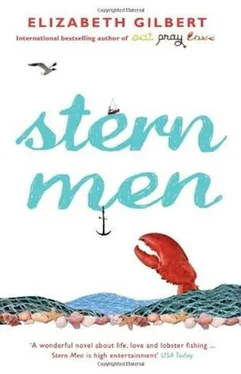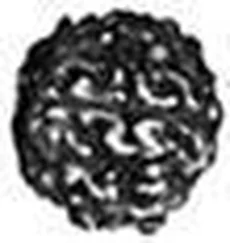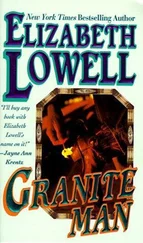“I don’t want to hear it twice, Ruth,” Mrs. Pommeroy said.
“Twice?”
“I don’t want to hear it once out of her mouth and once out of mine. Just forget it. She’ll be staying here from now on.”
Ruth was beginning to realize that Kitty Pommeroy woke up every day more drunk than most people would be in their entire lives. At night, she would cry and cry, and Mrs. Pommeroy and Ruth would put her to bed. She’d punch them as they struggled with her up the stairs. This happened nearly every day. Kitty even clocked Ruth in the face once and made her nose bleed. Opal was never any help in dealing with Kitty. She was afraid of getting hit, so she sat in the corner and cried while Mrs. Pommeroy and Ruth took care of everything.
Opal said, “I don’t want my baby growing up around all this yelling.”
“Then move into your own goddamn house,” Ruth said.
“You move into your own goddamn house!” Robin Pommeroy said to Ruth.
“You all are just like brothers and sisters,” Mrs. Pommeroy said. “Always teasing each other.”
Ruth couldn’t see Owney. She hadn’t seen him since the wedding. Pastor Wishnell was making sure of that. The pastor had decided to spend the fall on a grand tour of the Maine islands, with Owney as his captain, sailing the New Hope to every dock in the Atlantic from Portsmouth to Nova Scotia, preaching, preaching, preaching.
Owney never called Ruth, but how could he? He had no number for her, no idea that she was living with Mrs. Pommeroy. Ruth didn’t so much mind not being called; they’d probably have had little to say to each other on the phone. Owney wasn’t much of a conversationalist in person, and she couldn’t imagine dallying away hours with him over the line. They’d never had all that much to talk about. Ruth didn’t want to talk to Owney, anyhow. She wasn’t curious to catch up with Owney on local gossip, but that didn’t mean she wasn’t missing him or, rather, craving him. She wanted to be with him. She wanted him in the room with her so that she could feel again the comfort of his body and his silence. She wanted to have sex with him again, in the worst way. She wanted to be naked with Owney, and thinking about that filled up a good bit of her time. She thought about it while in the bathtub and in bed. She talked to Mrs. Pommeroy again and again about the one time she’d had sex with Owney. Mrs. Pommeroy wanted to hear all the different parts, everything the two of them had done, and she seemed to approve.
Ruth was sleeping on the top floor of the big Pommeroy house, in the bedroom Mrs. Pommeroy had first tried to give her when she was nine-the bedroom with the faint, rusty blood spatters on the wall where that long-ago Pommeroy uncle had taken his life with a shotgun blast in the mouth.
“As long as it doesn’t bother you,” Mrs. Pommeroy told Ruth.
“Not a bit.”
There was a heating vent on the floor, and if Ruth lay with her head near it, she could hear conversations throughout the house. The eavesdropping brought her comfort. She could hide and pay attention. And, for the most part, Ruth’s occupation that autumn was hiding. She was hiding from her father, which was easy, because he wasn’t looking for her. She was hiding from Angus Addams, which was slightly more difficult, because Angus would cross the street if he saw her and tell her what a dirty little whore she was, fucking around with a Wishnell, trash-mouthing her father, slinking around town.
“Yeah,” he’d say. “I heard about it. Don’t think I didn’t fucking hear about it.”
“Leave me alone, Angus,” Ruth would say. “It’s none of your business.”
“You slutty little slut.”
“He’s just teasing you,” Mrs. Pommeroy would tell Ruth if she happened to be there, witnessing the insult. This made both Ruth and Angus indignant.
“You call that teasing?” Ruth would say.
“I’m not goddamn teasing anyone,” Angus would say, equally disgusted. Mrs. Pommeroy, refusing to become upset, would say, “Of course you are, Angus. You’re just a big tease.”
“You know what we have to do?” Mrs. Pommeroy told Ruth again and again. “We have to let the dust settle. Everyone loves you here, but people are a little worked up.”
The biggest portion of Ruth’s hiding occupation during August involved Mr. Ellis, which meant she was hiding from Cal Cooley. More than anything else, she did not want to see Mr. Ellis, and she knew Cal would someday fetch her and bring her to Ellis House. She knew that Lanford Ellis would have a plan for her, and she wanted no part of it. Mrs. Pommeroy and Senator Simon helped her hide from Cal. When Cal came to the Pommeroy house looking for Ruth, Mrs. Pommeroy would tell him she was with Senator Simon, and when Cal asked for Ruth over at the Senator’s, he was told she was at Mrs. Pommeroy’s place. But the island was only four miles long; how long could that game last? Ruth knew that when Cal really wanted to catch her, he would. And he did catch her, one morning at the end of August, at the Ellis Granite Company Store building, where she was helping the Senator build display cases for his museum.
The inside of the Ellis Granite Company Store was dark and unpleasant. When the store was closed, almost fifty years earlier, everything had been stripped from the place, and now it was a gutted, dry building with boards over the windows. Still, Senator Simon couldn’t have been happier with Ruth’s strange gift to him, after the Wishnell wedding, of the key to the padlock that had kept him out of the place so long. He couldn’t believe his fortune. He was so excited about creating the museum, in fact, that he temporarily abandoned Webster Pommeroy. He was willing to leave Webster down at Potter Beach alone to scour the mud for the last elephant tusk. He had no energy these days to worry about Webster. All his energy was devoted to fixing up the building.
“This is going to be a splendid museum, Ruth.”
“I’m sure it will be.”
“Mr. Ellis really said it was fine to make the place into a museum?”
“He didn’t say that in so many words, but after I told him what you wanted, he gave me the key.”
“So it must be fine with him.”
“We’ll see.”
“He’ll be delighted when he sees the museum,” Senator Simon said. “He will feel like a patron.”
Ruth was beginning to understand that a major part of Senator Simon’s museum was going to be a library for his vast collection of books-books for which he had no more room in his house. The Senator had more books than artifacts. So the Senator had to build bookshelves. He’d already planned it. There was to be a section for books on shipbuilding, a section for books on piracy, a section for books on exploration. He was going to devote the entire downstairs for his museum. The storefront would be a gallery of sorts, for rotating exhibits. The old office rooms and storage rooms would have books and permanent displays. The basement would be for storage. (“Archives,” he called it.) He had no plans for the top floor of the building, which was an abandoned three-room apartment where the manager of the general store had lived with his family. But the downstairs was all accounted for. The Senator was planning to dedicate an entire room to the “display and discussion” of maps. As far as Ruth could see, the display itself was not coming along very quickly. The discussion, though, was well advanced.
“What I wouldn’t give,” Senator Simon told Ruth that afternoon in August, “to see an original copy of the Mercator-Hondius map.” He showed her a reproduction of that very map in a volume he’d ordered years earlier from an antiquarian book dealer in Seattle. This insistence of the Senator’s to show Ruth every book he handled, to talk over every interesting illustration, was slowing down considerably the preparation of the museum. “Sixteen thirty-three. You can see they’ve got the Faroe Islands right, and Greenland. But what is this? Oh, dear. What could that land mass possibly be? Do you know, Ruth?”
Читать дальше









